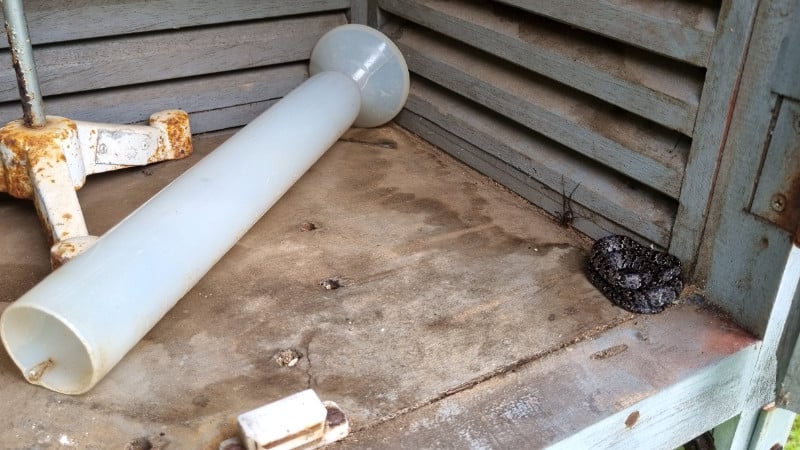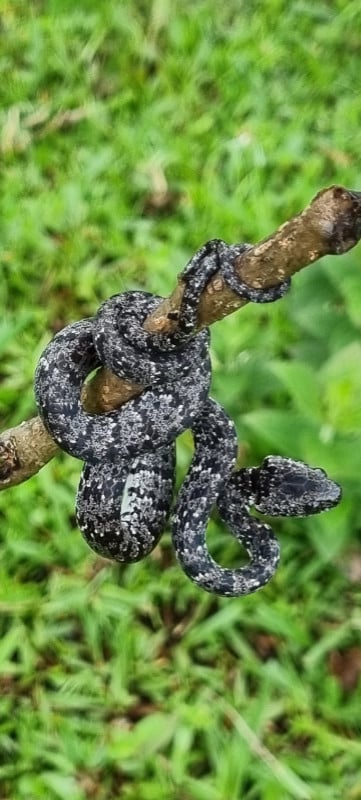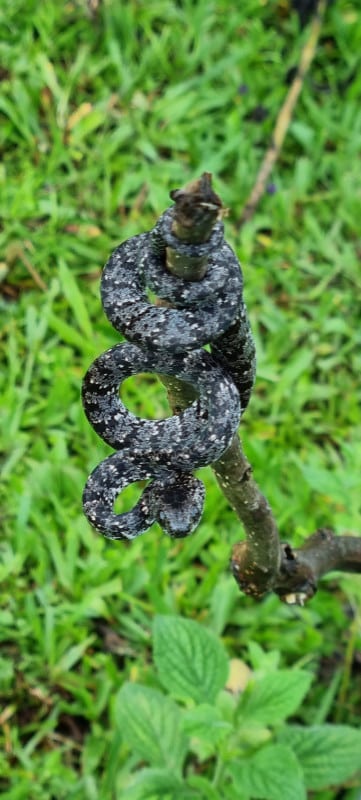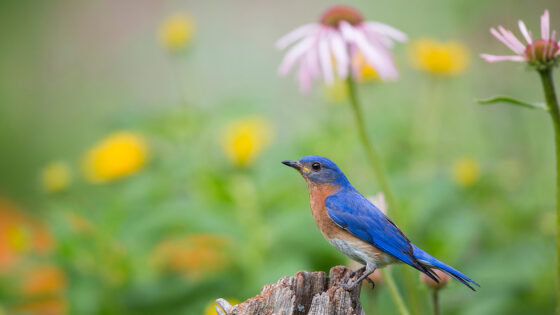For more than three decades, Maritza Biological Station in Costa Rica has been the headquarters of Stroud Water Research Center’s tropical ecosystem studies. Stroud Center scientists travel to Maritza for specific research projects, but day-to-day data collection falls to Rafa Morales, long-time station manager at Maritza.
Morales occasionally shares photos and videos of interesting wildlife he encounters as he goes about his work. Those of us at the Stroud Center’s homebase in Chester County, Pennsylvania, enjoy these glimpses of the tropics!
Morales recently encountered a caracolera while gathering rainfall data from the Maritza weather station. (Air temperature and precipitation data has been collected daily since 1990.) The caracolera, or cloudy snail-eater (Sibon nebulatus), is a nocturnal snake that lives in evergreen lowland and foothill forests, usually close to bodies of water, from central Mexico to northern South America. As their common name suggests, they mainly feed on snails and slugs.
Morales sent along these photos and assured us that the beautiful little snake was a harmless, if surprising, visitor.



Our Global Reach
The establishment of Maritza Biological Station marked the beginning of the Stroud Center’s global research and education programs. Since then, the Stroud Center has conducted research on the Amazon and Congo rivers and the streams of Papua New Guinea; led education workshops in Peru; organized a Leaf Pack Network group in Kenya in collaboration with Nobel Peace Prize winner Wangari Maathai’s Green Belt Movement; and assessed water quality conditions and helped set up monitoring and community science programs in Bhutan. Donate now to help fund this important global work protecting the future of clean fresh water.



